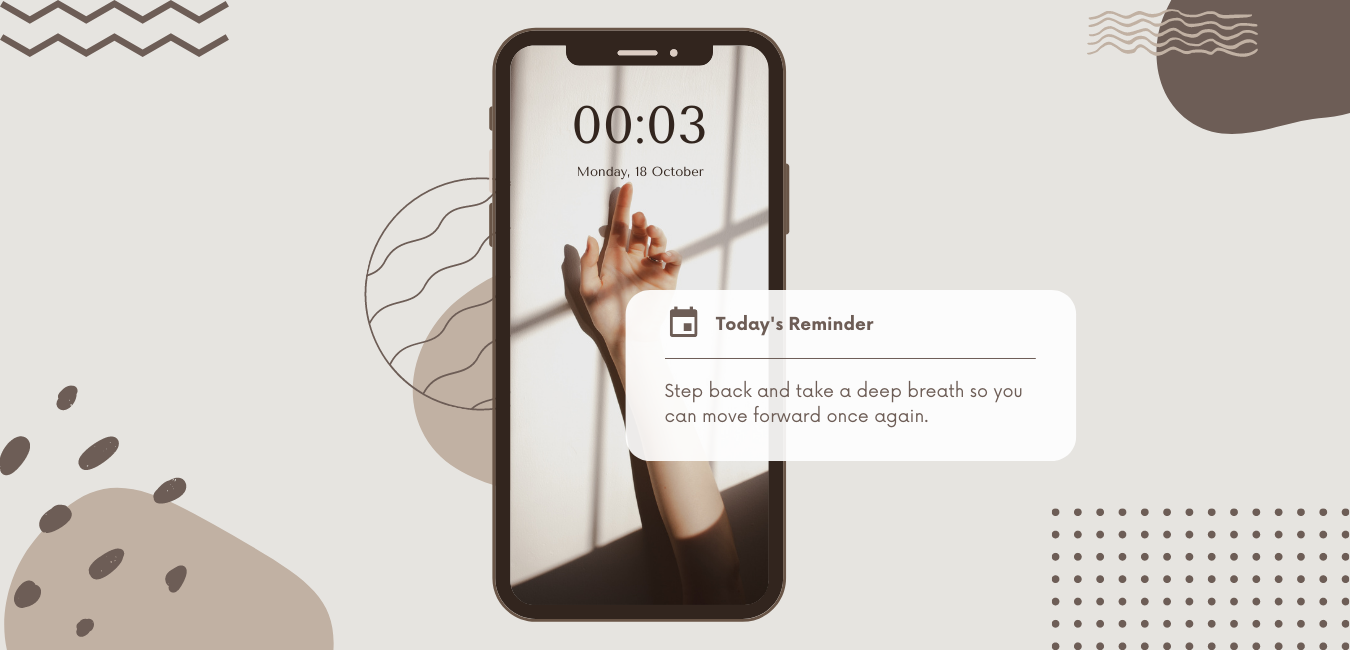Why Taking One Step Back Could Be Your Best Step Forward
Congrats on making it more than halfway through 2021! For many of us, 2021 became a fresh year to make up for the missed opportunities the 2020 lockdowns brought about. Many of us may have even pledged, on New Year’s Day, to pounce on every opportunity we encounter this year as we determinedly wrote out resolutions to stick to our walls.
Some of us may have been successful or are on track with achieving our resolutions. Some of us, maybe not. I, for one, have fallen into the latter.
One week before my winter subject started, I contacted my uni to un-enrol me. When I finally told my friends, I was met with disbelief that I would turn against my own word. To be honest, it shocked me a little too. I was so set on pushing myself to study two extra subjects this year, genuinely believing that I could do it. What happened to the determination that had fuelled me when the year began?
But having just re-emerged from the busy semester exam period, I realised I was burnt out. My mind was overwhelmed with pressure to do particularly well in my winter classes and to make the most out of the semester break. But I knew that no matter how much I wanted to commit to it, I wouldn’t do a great job. At least, not in the mindset I was in.
It might feel good to say yes to everything that comes. But I learned that now, more than ever, it’s a time to pause, reset and reflect.
“I can’t afford to pause, I don’t have time.”
We all feel that way at one point or another. But too often, we set goals and become obsessed with achieving them – perhaps so obsessed that we view a goal with tunnel vision, overlooking why we even commit to it. Maybe this goal was writing a book, a financial target for your savings account, or seeking that perfect job.
Author David Foster Wallace famously opened his 2005 speech at Kenyon College to the graduating class with:
There are these two young fish swimming along and they happen to meet an older fish swimming the other way, who nods at them and says, “Morning, boys. How’s the water?” And the two young fish swim on for a bit, and then eventually one of them looks over at the other and goes, “What the hell is water?”
Now, what if the two young fish stopped to consider where they were at? What if we paid more conscious attention to where we are currently at?
Sometimes we’re so enthralled about achieving a goal that it becomes our only focus. As a result, you might overlook other opportunities you encounter along the way, or even the smallest pleasures around you.
When was the last time you sat down and sipped your cup of morning coffee? I mean, really sat down (not half sitting, half getting ready to run out the door) and enjoyed your coffee – the aroma, the warmth, the taste.
Hitting the pause button is needed from time to time, and there’s a few things you can do as you take your break.
Reassess your goal
That goal you set for yourself which you were so fixated on achieving – do you still feel strongly about it? Taking a pause is a chance to sit down and put your goal into perspective. Is it still what you really want? Maybe it’s not. Maybe you’ll find that you no longer resonate with it and that’s okay. Take the opportunity to reconsider what you want moving forward.
Find your flow
Have you ever started doing something early in the afternoon and were so captivated that before you knew it, the sun had set? The authors of the book Ikigai reinforce the importance of finding something meaningful you enjoy doing so much that you can lose sense of time – the Japanese concept of ikigai.
Though we let our younger selves get carried away with exciting hobbies, the busyness of our adult lives has meant these have been swept aside. Get back in touch with what you’ve always loved doing and integrate it into your life again.
Set good habits moving forward
It’s easy to get stuck with bad habits as you navigate through the hustle and bustle of life. But, just like bad habits develop over time, the same goes with good habits. Habit-building is hard. It’s one thing to wake up and vow you’ll be committed to daily 7:00am jogs, but it’s another to really carry through with it.
In his book Atomic Habits, author James Clear notes that “habits are the compound interest of self-improvement”. By integrating small important acts regularly into your daily life, you can develop habits that really stick.
While not everyone’s circumstances allow for them to easily take time off, prioritising oneself is important. If you’re looking for a sign to pause and reset, that time is now. By taking a much-needed break and considering how you can invest in yourself for the long term, perhaps you’ll realise that taking one step back will, in fact, be your best step forward.
